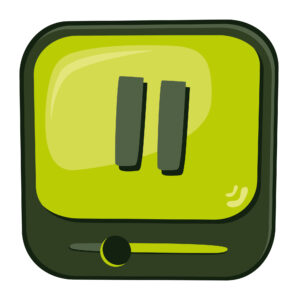 “Pause” is my focus word/concept for 2023. Oxford Dictionaries defines “pause” as “to stop talking or doing something for a short time before continuing.”
“Pause” is my focus word/concept for 2023. Oxford Dictionaries defines “pause” as “to stop talking or doing something for a short time before continuing.”
Hitting the figurative pause button should provide me with these three benefits:
- Give myself space to be more deliberate in my thinking, decision-making, and acting.
- Help me support others, especially clients and colleagues, in slowing down and being more purposeful.
- Inspire me to start writing my portion of a long-planned book on why and how to adopt the habit of pausing before communicating. (More on this later.)
I chose “pause” to complement my last two focus words, “nuance” in 2022 and “explicit” in 2021. With all the uncertainty and complexity we’re dealing with these days, I’m trying to slow myself down to get a full-spectrum view. That helps me better better grasp the situations I encounter, especially to see other perspectives. By contrast, if I just snatch a bird’s-eye view in passing, the picture can be more ambiguous rather than explicit and certainly without the nuances. And as a result, I miss valuable information, insights, and points of view.
“Pause” also will be helpful for countering subliminal messages from the upcoming Lunar New Year – The Year of the Rabbit – starting January 22. Rather than visualize a speedy hare, I’ll zoom out, envision the fable The Tortoise and the Hare, and channel the tortoise.
The pace of the slower yet steadier tortoise is helpful for our times, especially in business. Adopting a cadence of pausing allows us to be more purposeful, thoughtful, and considerate, especially in our interactions with others. And this approach is less draining and more efficient than toggling, often frantically, between the two more common modes – instant action and inconsistent and unpredictable delays.
And I definitely want to avoid being in goblin mode – the Oxford 2022 Word of the Year the public chose. This slang term describes the behavior of being “unapologetically self-indulgent, lazy, slovenly, or greedy, typically in a way that rejects social norms or expectations,” which also describes our times unfortunately.
As for the book I’m writing with Sam Yankelevitch and Jim Thompson as the three members of the Habit Crew, we’ve concluded that the most valuable keystone habit you can adopt for communication is pausing before you convey anything with others. This pause is especially helpful before asking others to make a commitment, comply with a request, or take another action.
Why? For example, if you pause to consider the 5 “w”s (who, what, why, when, and where) and 1 “h” (how) before rushing to communicate, you exponentially improve your chances of successfully engaging on the first try. That means you can prevent much of the frustrating, time-consuming, and inefficient back-and-forth volleys that are so common in communication.
Communication is complicated, even though we do it all the time. That’s because we humans are complex and our language is as well. Also, we tend not to question or even be aware of the assumptions that we’ve made and are using. Nor do we routinely recognize that others may be operating with totally different assumptions.
We’re also dealing with massive amounts of information and some bad habits, such as poor listening skills, being self-centered, and being sloppy with details. Any one of these elements can hijack our communication effectiveness, and unfortunately we’re often dealing with multiple challenges, which leads to situations going haywire.
By the way, a “keystone” habit is a routine action that you do first to lay the foundation to then help you build momentum for all related actions. That’s why pausing is such a powerful move for effective communication. By intentionally stopping and considering how to communicate well, anyone who adopts this keystone habit can reduce the size and number of mishaps. You won’t achieve perfection as that’s unrealistic with a practice that’s so complicated, complex, and continuous. However, you’ll continue to improve. (And if you have any questions or great stories of communication, either gone haywire or become blissful, let me know.
By the way, this is my third year in a row to choose a focal word. What about you? Do you have a focal word or phrase for 2023? If so, please share.

0 Comments